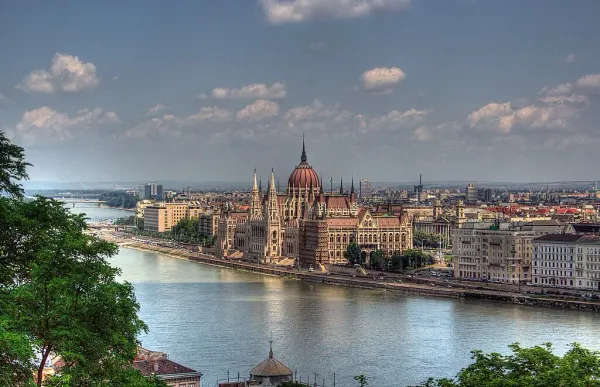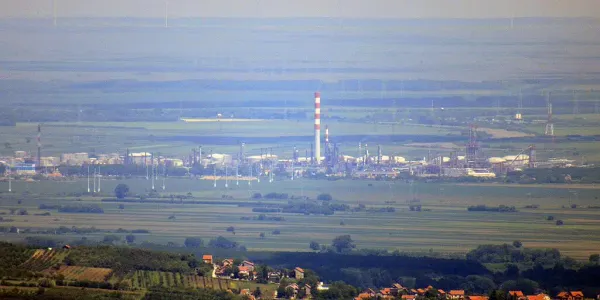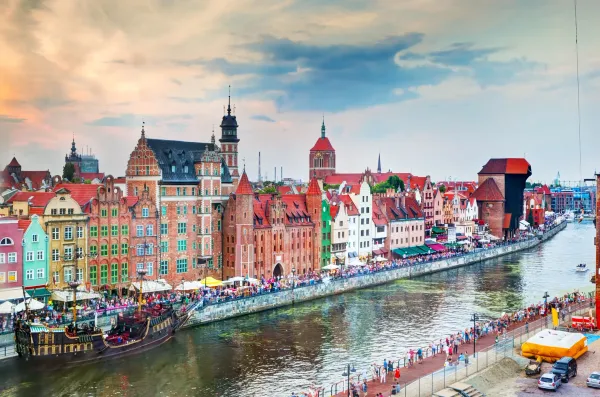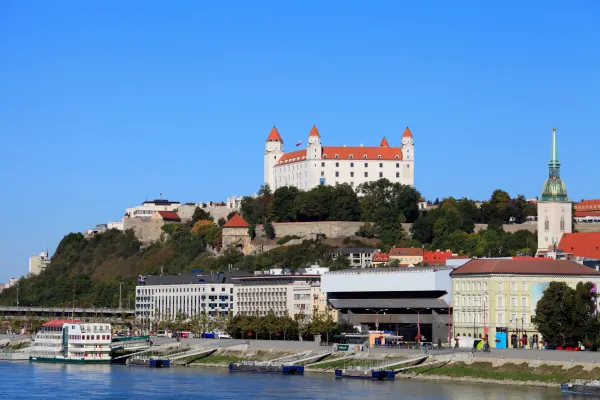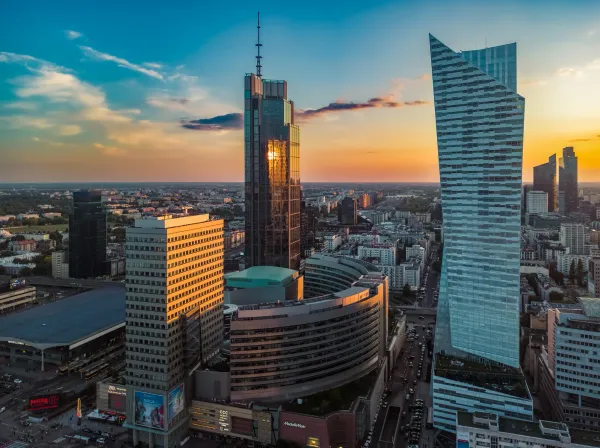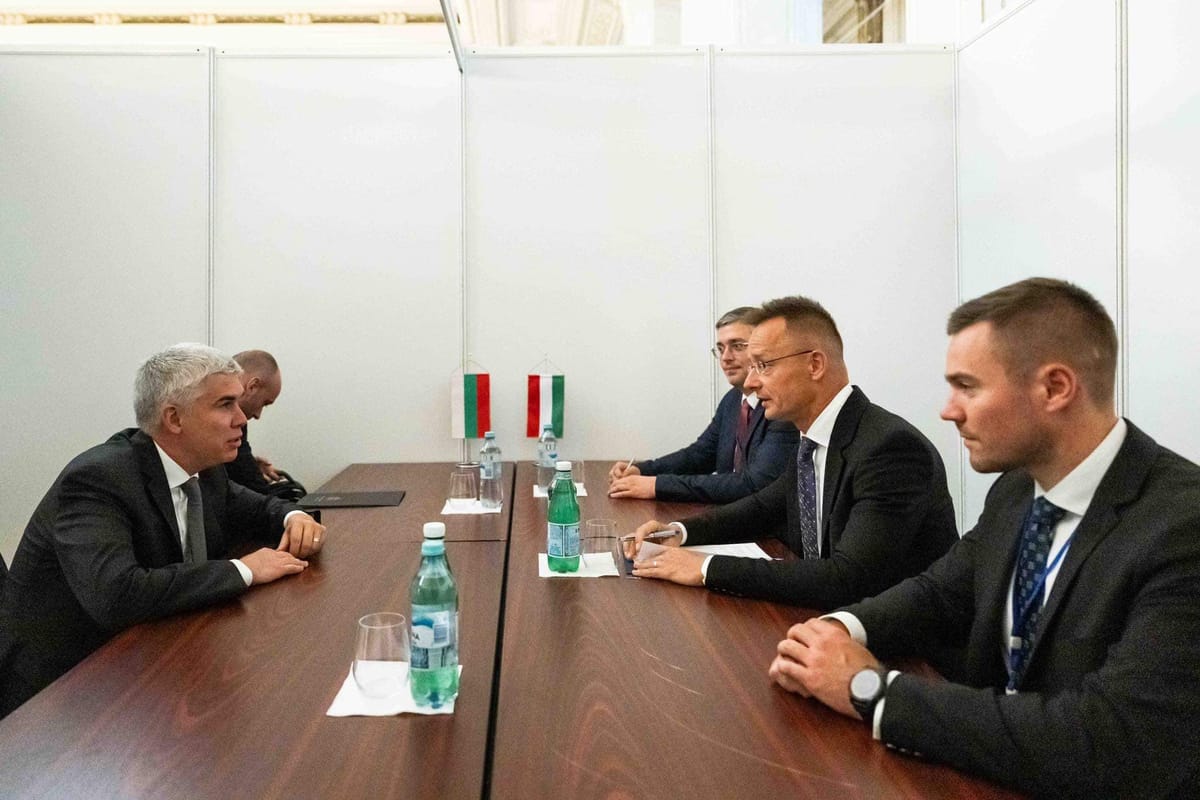
Bulgaria offers help to Slovakia, Hungary after Ukraine imposes Lukoil transit ban
Bulgaria has extended a helping hand to Hungary in managing the fallout from Ukraine’s recent ban on the transit of oil from Russia’s Lukoil, Hungarian Foreign Minister Peter Szijjarto, announced in Bucharest, Romania, on Wednesday 24 July.
Szijjarto detailed how he and Bulgarian Energy Minister Vladimir Malinov had assessed in talks in the Romanian capital the aftermath of what he called Ukraine’s “unacceptable” decision to halt Lukoil’s crude oil transits.
Szijjarto criticised Ukraine’s actions, saying by blocking Lukoil’s transits Ukraine is “not only jeopardising the energy security of Hungary and Slovakia, but also breaching the association agreement between the EU and Ukraine”. He said this move endangers Hungary’s and Slovakia’s energy security and violates the EU-Ukraine association agreement.
The halt in crude oil shipments through Ukraine’s Druzhba (Friendship) pipeline has raised significant credit risks for refineries in both Hungary and Slovakia, according to Fitch Ratings. The credit agency noted that although these volumes are relatively small in the context of overall European supply, their absence could have a significant impact on energy supply in Hungary and Slovakia in the medium term.
Fitch added that MOL Hungarian Oil and Gas plc, which operates all refining assets in Hungary and Slovakia, relied on approximately 65%-70% of Russian crude as of May. MOL is working to reduce this dependence to 50%-55% by the end of the year, with full replacement of Russian crude expected by 2026. While MOL’s strong financial profile provides some cushion against the temporary interruption, long-term solutions will be necessary if the situation persists.
Kremlin-proximate Hungary ‘will continue to block’ Ukraine aid package
In response to the Ukrainian ban, Hungary has announced it will continue to block the disbursement of EUR 6.5bn (USD 7bn) from the European Peace Facility (EPF) for Ukrainian military aid until Kyiv allows the transit of Lukoil oil. Szijjarto stated, “I also made it clear that as long as Ukraine fails to resolve the issue, everyone can forget about the EUR 6.5bn in compensation for arms transfers under the EPF.”
This move has been framed as part of Hungary’s broader stance, often aligned with Kremlin interests, that argues EU aid prolongs and escalates the conflict that began when Russia launched a full-scale invasion of Ukraine in February 2022. Szijjarto called Bulgaria’s offer to help “yet another commendable and friendly gesture from Bulgaria”.
Slovakia, similarly impacted by the halt in oil transit, has threatened unspecified repercussions against Ukraine and has reminded of its critical role as an electricity supplier amid Ukraine’s energy deficit caused by Russian strikes. Despite this, Oleksiy Chernyshov, head of Ukraine’s state-owned energy company Naftogaz, has dismissed the complaints from Budapest and Bratislava as a “political issue,” asserting that overall transit volumes remain stable.
Szijjarto noted that while Bulgaria has no direct crude oil pipeline connections with Hungary, it is prepared to supply additional oil products through alternative routes. “Bulgaria has been a reliable transit country, respecting all its obligations,” he said. “This offer of assistance from Bulgaria is another beautiful and genuine gesture of friendship.”
Szijjarto also highlighted Bulgaria’s role in Hungary’s natural gas supply, noting that a substantial portion of Hungary’s gas is transported through Bulgaria. Last year, Hungary received 5.6bn cubic metres of gas via Bulgaria, and 3.9bn cubic metres so far this year.
Hungary, Slovakia were slow to decouple from reliance on Russian gas
The current dispute over oil transit between Ukraine, Hungary, and Slovakia underscores the challenges within the European Union’s sanctions regime on Russian energy. In response to Russia’s invasion of Ukraine, the EU imposed extensive sanctions on Russian oil and gas exports, aiming to weaken Moscow’s economic capacity to sustain its military aggression. These measures were part of a broader strategy to isolate Russia economically and politically.
Hungary and Slovakia, however, were granted significant exceptions to these sanctions due to their heavy reliance on Russian energy supplies. The Druzhba pipeline, a crucial route for Russian crude oil, has historically provided substantial volumes to these Central European nations. To prevent severe economic and energy disruptions, the EU allowed Hungary and Slovakia to continue importing Russian oil under certain conditions, emphasizing a gradual reduction in dependency.
Despite these provisions, Hungary and Slovakia have been criticized for their slow progress in diversifying their energy sources. While the EU’s expectation was that these countries would gradually reduce their reliance on Russian oil, they have maintained significant import levels. For instance, MOL Hungarian Oil and Gas plc, which operates refining assets in both countries, still relies on Russian crude for approximately 65%-70% of its refining needs as of May. Although MOL has announced plans to reduce this dependency to 50%-55% by the end of the year, complete diversification is not expected until 2026.
The recent decision by Ukraine to halt the transit of Lukoil’s crude oil has further exposed the vulnerabilities associated with Hungary’s and Slovakia’s continued reliance on Russian energy. Despite the EU’s initial provisions being designed as temporary measures, both countries have been slow to implement substantial changes, citing technical and financial challenges. This lack of urgency has now left them in a precarious position, as Ukraine’s actions threaten their energy security and challenge their strategic planning.
Opposition Momentum party president Marton Tompos tweeted, “Szijjarto has the gall to demand EU action against the partial ban of Lukoil transit enacted by Ukraine after the EU has given Hungary two years to diversify its energy imports and reduce dependence on Russia. They didn’t even try, and now we’re on the cusp of an energy crisis.”
In light of the Ukrainian ban, both Hungary and Slovakia have seemingly managed to bridge the supply gap with additional volumes from other sources. However, Fitch warned that a prolonged interruption of Russian supplies could pose a significant risk to refining operations and energy security in both countries. “Both Slovakia and Hungary maintain strategic oil and oil-products reserves of at least 90 days’ worth of average net imports, which can provide some buffer against extended interruptions,” Fitch wrote.

